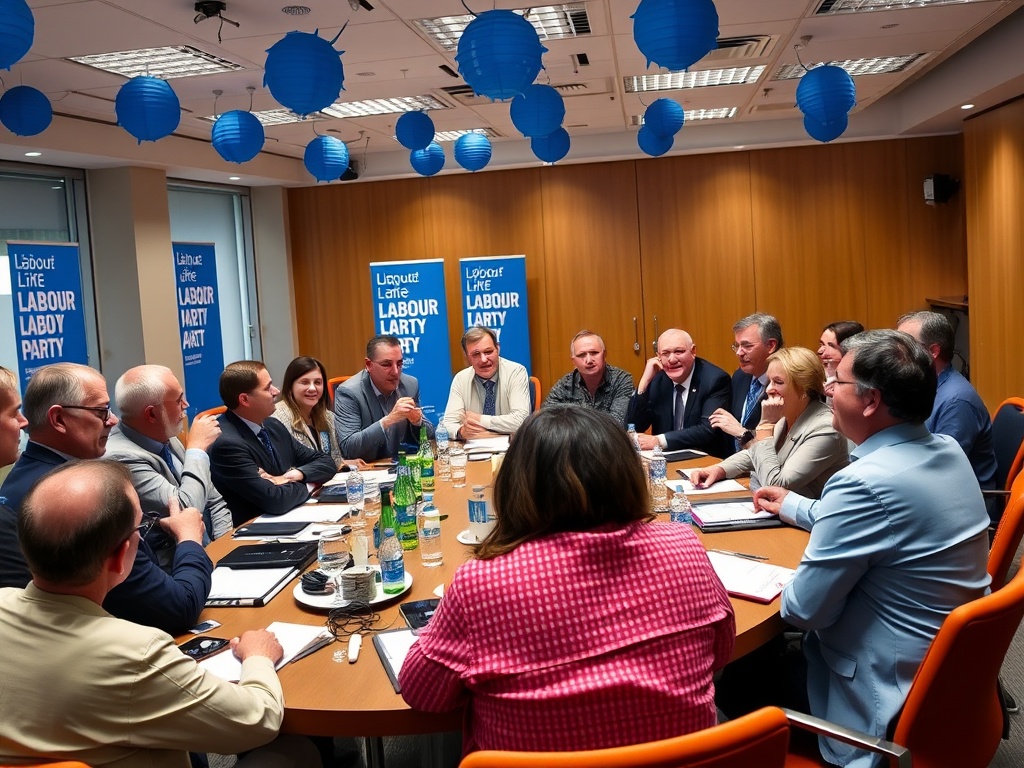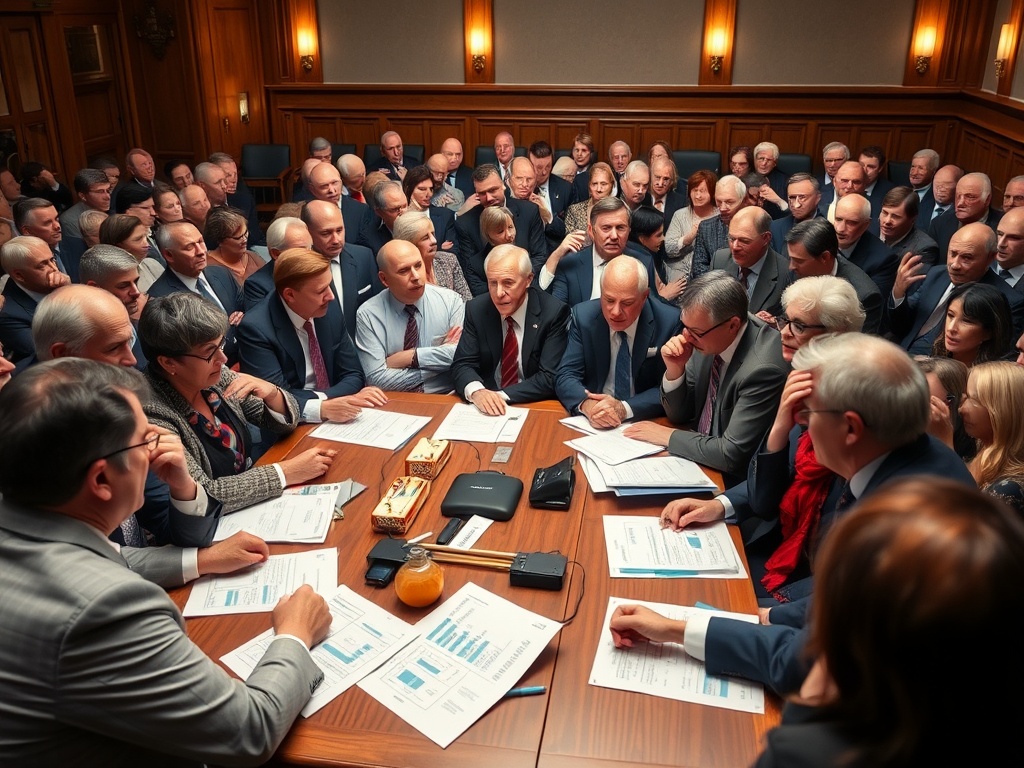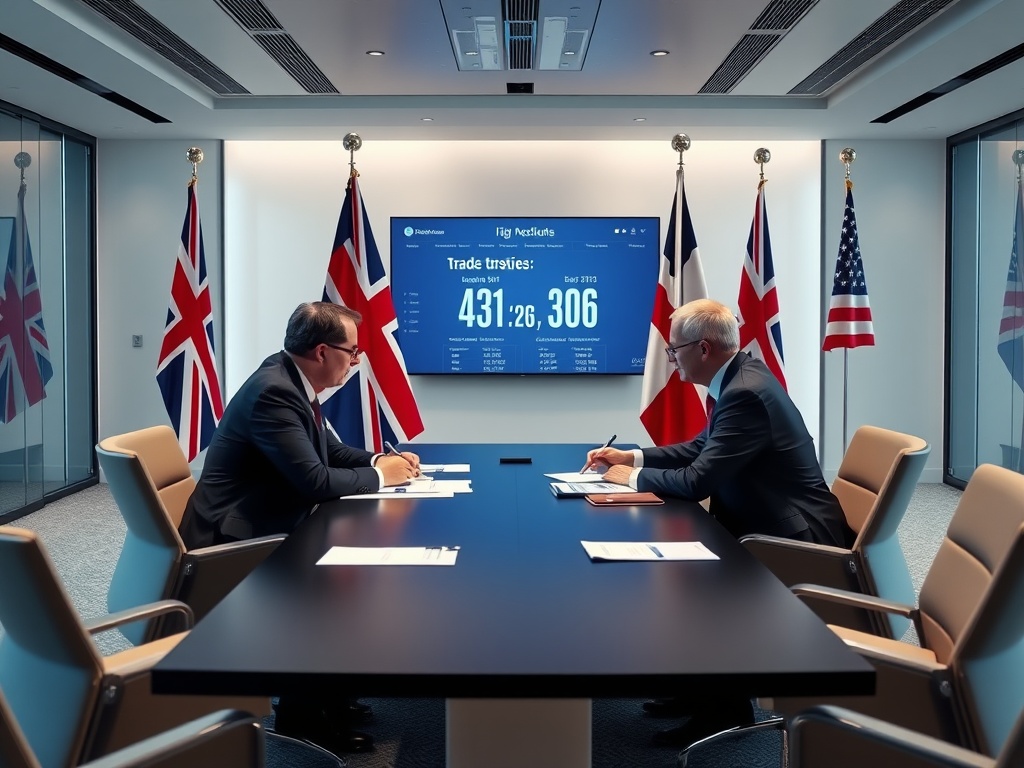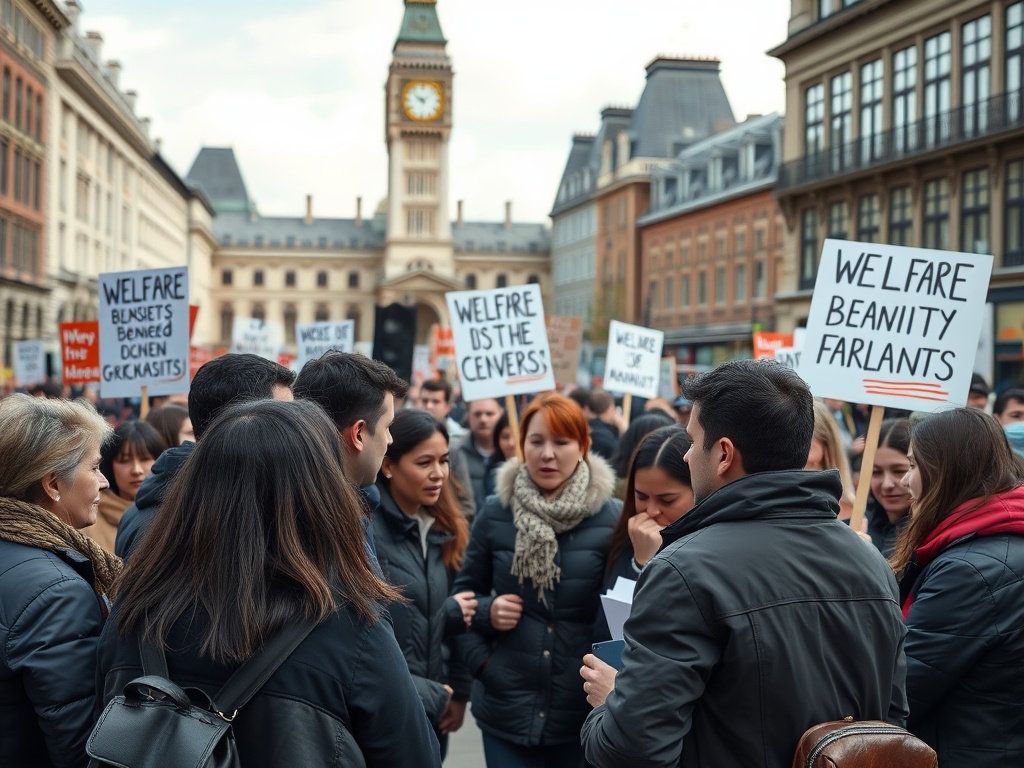A new political battleground is emerging within Labour’s parliamentary factions—one that will significantly shape the party’s trajectory as it braces for the upcoming general election in 2029. Although it may seem premature for MPs to ponder their electoral strategies more than four years ahead, persistent polling indicating a potential threat from Reform UK, alongside many MPs holding precariously slim majorities, has sparked a wave of introspection among Labour members.
This introspection has reignited discussions surrounding the principles of Blue Labour, a movement many believed had faded away a decade ago with Ed Miliband’s leadership. However, the shifting political landscape, marked by a growing endorsement of right-wing populism in both the UK and the US, has prompted numerous Labour’s new MPs to revisit the “Blue Labour” ideology as a means to counter the encroaching influence of Nigel Farage’s new party.
As one MP from the “Red Wall,” who is defending a majority of less than a thousand, articulated: “We have council by-elections where Reform didn’t even stand last time around, but now they are looking odds on to win. We need to start discussing issues that resonate with constituents like mine.”
Understanding Blue Labour and Its Core Principles
The renewed interest in Blue Labour has led its advocates to clarify its central tenets. In a statement posted on X/Twitter, they affirmed: “The Labour Party was founded to represent working-class individuals in Parliament. It did not originate as a liberal or progressive entity, but rather as a party of, by, and for working people. The clue lies in its name.”
They further elaborated that by embracing globalization, Labour reshaped itself into a progressive party that became disconnected from the vast majority of the working class. As the liberal consensus begins to crumble, there are concerns that Labour risks becoming obsolete in this new era.
Established by Maurice Glasman, a Labour peer and political theorist, Blue Labour fell out of favor during the Corbyn years, a period when Labour’s appeal shifted towards middle-class urbanites and university students, alienating working-class voters from Labour’s traditional heartlands. Glasman, the only UK Labour figure invited to President Trump’s inauguration this year, contends that the progressive ideals associated with Corbynism and the US Democratic Party are faltering.
“Progressive Liberalism Is in Retreat Everywhere”

In an interview with The House magazine, Glasman expressed: “Europe is swinging hard to the right, America has gone full MAGA, and progressive liberalism is retreating on all fronts.” This perspective is starting to gain traction within the Labour parliamentary ranks, potentially creating new rifts among MPs.
Glasman, who openly critiques New Labour, has already ruffled some feathers with comments made to the New Statesman, where he referred to Rachel Reeves as “just a drone for the Treasury.” He argued that there is a lack of a vision for economic renewal and no plan for revitalizing distant towns.
Despite his sharp criticisms, MPs and ministers are increasingly willing to overlook his blunt remarks, recognizing the necessity for Labour to pivot towards the needs of working-class voters before the next election.
Values: Faith, Family, and Flag
As one minister remarked to The i Paper, “I’m a big fan of Maurice; he can be a bit extreme at times, but he is a profound thinker.” This minister noted that Glasman and John Cruddas, the former Dagenham Labour MP, have pioneered valuable ideas centered around the significance of faith, family, and national pride.
However, the minister acknowledged that there exists considerable skepticism among Labour MPs regarding this approach, particularly as the party is a broad coalition following its electoral victory in July, which included regaining seats like Bolsover and Workington while also winning in places like Banbury in Oxfordshire for the first time.
“There is definitely a tension within the party,” the minister continued. “Morgan [McSweeney, Sir Keir Starmer’s chief of staff] understands this, especially given his background. The tension will revolve around the type of new coalition we will form for the next election. It won’t resemble the coalition we had before, and it is likely to be a narrower base.”
“Boris Johnson-Style” Public Service Spending
Another Labour MP representing a “Red Wall” constituency echoed similar sentiments, while disagreeing with Glasman’s critique of Reeves as “uncalled for” and suggesting that the Blue Labour branding is “too much blue.” Nonetheless, this MP emphasized the need for a new direction before the next election: “We need to focus on reindustrializing parts of the country and improving the lives of working-class people, which aligns with the kind of public service spending seen under Boris Johnson, while still being socially conservative.”
This MP acknowledged the internal party tensions, noting that those who have been around longer and are more likely to secure ministerial roles often come from seats that Corbyn managed to retain in 2019. This creates a disparity between their views and those of MPs representing more working-class constituencies.
“Morgan McSweeney Understands It”
Despite these differences, another MP stated: “Morgan certainly gets it. He isn’t naive, and Keir and his team are astute. They recognize that what resonates with working-class voters in Red Wall seats in the North East will also appeal to people in Essex and Kent. It all boils down to common-sense values.”
McSweeney, who spearheaded Labour’s successful election campaign, is believed to be a proponent of the Blue Labour ideology, having collaborated closely with Cruddas and Glasman in Barking and Dagenham to counter the threat of the BNP. However, he risks igniting an internal conflict if he concludes that the best way to secure the next election is by forsaking MPs who represent more liberal areas.
A “Toxic” Appeal to Constituents
As one MP from a well-off former Tory constituency remarked: “The revival of Blue Labour would be toxic. They are attempting to win back voters who will never return. My election is a testament to the party’s evolution.” This MP believes that Labour can successfully balance appealing to working-class voters while also attracting former Tory and Lib Dem supporters who voted for them this time.
“However,” they added, “there is no appetite for a Blue Labour resurgence. While they may have had a case back in 2015, we’ve moved beyond that point. They lack a significant presence in the Parliamentary Labour Party. Morgan knows what it takes to win elections; it’s not about Blue Labour.”
Both factions maintain confidence in McSweeney’s electoral strategy, but the question remains: will it yield results come 2029?




